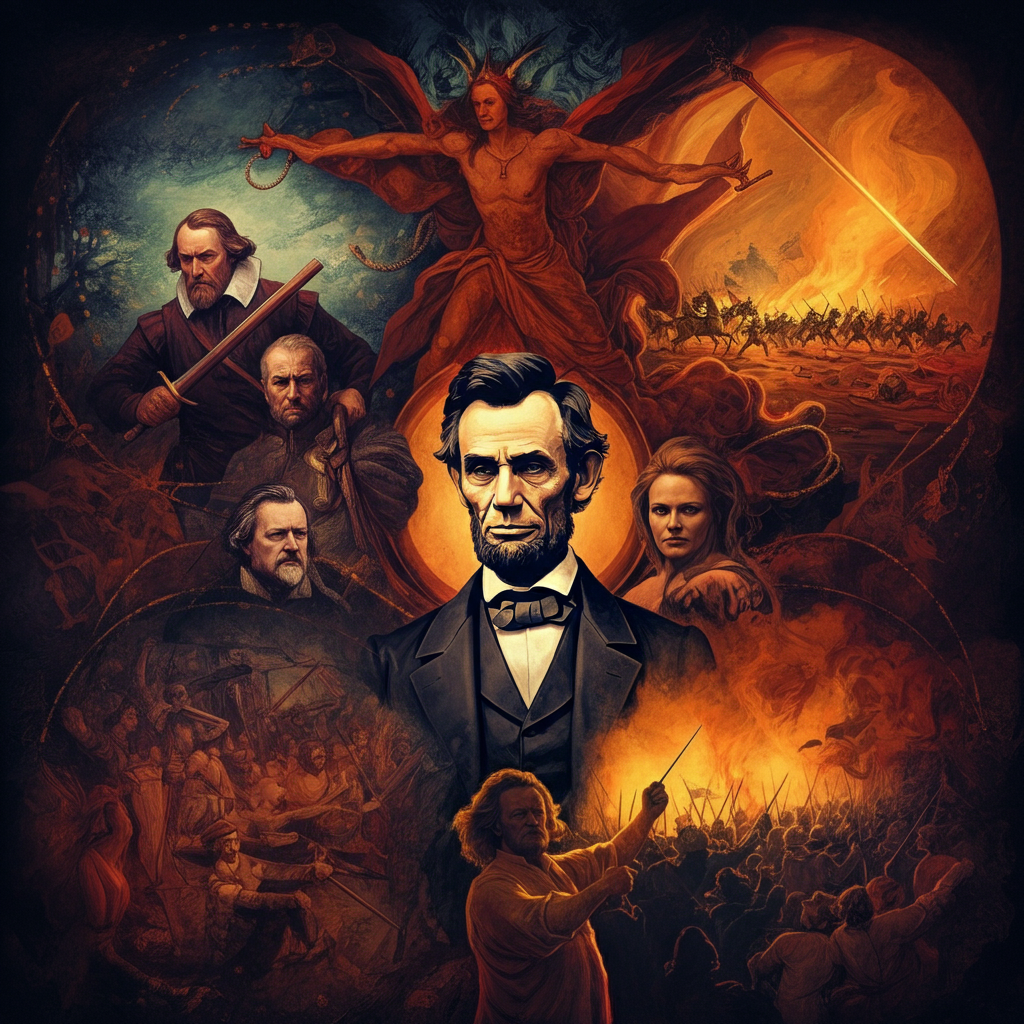
Goddammit…it’s Monday again, dear reader. But this particular Monday happens to be September 22nd, which is a date when the cosmic tumblers clicked into place to reveal a pageant of death, art, and the messy, ink-stained business of freedom. It’s a day for the poets with blood on their knuckles and the presidents with the weight of a nation’s soul on their shoulders. So let’s get to it.
First, let’s teleport back to 1598, to a London stinking of gin and plague, where the original literary badass, Ben Jonson, found himself in what those limey gits would call “a spot of bother.” See, old Ben, a man whose plays were as dense and layered as his liver was probably cirrhotic, got into a duel. With swords. Not some bullshit metaphorical duel of wits on the stage or something, but a real, cold-steel-in-the-guts affair with an actor named Gabriel Spenser. Fucking actors. Jonson, a bricklayer’s son with a poet’s rage, ran Spenser through. Killed him dead. So, British law, in its infinite and typically idiotic majesty, slapped him in irons for manslaughter. For winning a legitimate, accepted duel! Things were dark for Ben. The gallows loomed. But, in more English jurisprudential silliness, there existed a get-out-of-jail free card for the literate reprobate: something called “benefit of clergy.” Jonson, standing before the executioner, probably nursing a world-ending hangover, claimed his clerical privilege. He recited a psalm in Latin – the so-called “neck verse” – proving he could read and was thus, by some twisted British logic, too valuable to hang. He walked away with a mere branding on his thumb, a permanent reminder that sometimes, the only thing separating a genius from a corpse is the ability to conjugate a dead language. A lesson for us all, I think.
Fast forward about 178 years, across the pond to the nascent, screaming birth of America. September 22, 1776. The air is thick with gunpowder and revolutionary fervor. A young captain named Nathan Hale, 21 years old, is about to be stretched by the neck by the insipid British. His crime was espionage. He was a spy, a ghost in the enemy’s machine, caught behind the lines. Before they kicked the stool out from under him, he uttered the most badass, patriotic, and noble line ever: “I only regret that I have but one life to lose for my country.” Fuck yes.
You have to respect the balls of that statement. No goddamn whining, no pleading, just pure, crystalline conviction. It’s the kind of quote that gets carved into granite, the kind of sentiment that fuels nations. It’s a far cry from Jonson’s linguistic loophole, a different brand of courage altogether. One man uses words to save his own skin; another uses them to martyr it. History, dear reader, is a study in contrasts.
Then, the calendar pages keep turning, relentlessly, as they do, until we land on 1862. The nation Hale died for is now tearing itself apart at the seams. Republican President Abraham Lincoln, sat in his office, the air thick with cigar smoke and the ghosts of thousands of dead boys. On this day, he unsheathes his own weapon, not a sword or a spy, but a document: the preliminary Emancipation Proclamation.
This was a strategic masterstroke wrapped in a moral imperative – a piece of paper that weaponized freedom. It declared that as of the new year, all slaves in the Confederate territories would be “then, thenceforward, and forever free.” It was a promise, a threat, and a seismic shift in the very definition of the war. It was the moment the conflict stopped being just about preserving a union and started being about forging a new one, one cleansed however imperfectly, of its original sin. It was the dirty, necessary, and world-altering work of a Republican president who understood that history is written not just with ink, but with blood and righteous fire.
And just to prove that the universe has a flair for the dramatic, let’s skip over to Munich, 1869. While America was still binding its wounds, Germany was birthing a different species of monster. Richard Wagner, the man with the titanic ego and even more titanic talent, unleashed the first part of his magnum opus, Das Rheingold. This was a four-part, fifteen-hour mythological apocalypse set to music, a saga of gods, dwarves, and a cursed ring that would make Tolkien blush.
The premiere itself was a spectacle of chaos, staged against the composer’s wishes. But it was the beginning of The Ring Cycle, an artistic undertaking so vast and utterly megalomaniacal that it still feels impossible. Wagner was trying to forge a new German mythology from scratch, using trombones and sopranos instead of hammers and steel. It was the ultimate artistic flex, declaring that art could be as powerful and world-shaping as any proclamation or revolution.
So there you have it. September 22nd: a day of saved necks and sacrificed lives, of freedom declared and myths born. It’s a chaotic cocktail of human brilliance and brutality, a reminder that the people who leave a mark on this wretched, beautiful world are the ones who aren’t afraid to duel, to spy, to sign the damn paper, or to write the impossible opera.
What did you do today?
N.P.: “Dagegen” – Eisbrecher
Somebody thought they could leave a comment!